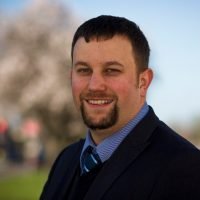Integration: We Think We Might Have Found The Answer!

What makes a Briton and a ‘British value’ is the thorniest of issues, but whether we agree with current government policy or not, we can agree that speaking English is a key entry point for anyone who is to integrate within the United Kingdom today.
That’s why, amid the cries back and forth over the Casey review, we must not miss some of the key things we have already learned about how to build a stronger society. Sir Eric Pickles, when he was Secretary of State at the Department for Communities and Local Government (DCLG), put it most succinctly: “If you can’t speak English you can’t join in!” This has been a principle many of us have faced when on a foreign holiday and the conversation around turns away from English – and you realise you are no longer a full part of the scene.
However, language is not the full story: you can lay on English classes in fine establishments, but not connect with the people who need them most. You can teach the best technical language possible and find that none of your students speaks English outside the class. A proper English language strategy needs to include ‘reach’ into the parts of the community that would otherwise be untouched. And your classes need to inspire a little of something different: a ‘have a go mentality’ which breeds confidence and make the class a springboard rather than a theoretical dojo, separated from real life.
So where are reach and confidence, vital ingredients for integration, to be found?
A number of years ago the DCLG started out on a journey of genuine discovery to find community-based approaches to English learning. At FaithAction we have been able to play a key part in this, using the innovative approaches developed by Dr Anne Smith, which use drama in ‘mini-soap opera’ scenes to encourage learners to develop that all-important ‘have a go’ mentality. Creative English is now running throughout England as individual groups have taken on the licence to deliver the programme, alongside funding from DCLG.
Innovation should not be limited to what happens to someone in the classroom: there should be innovative approaches to how we engage with people in the first place. After all, the classroom can only be of use to those who are in it! Far from seeing faith as the source of the problems that Dame Louise Casey’s report outlines, we must see the very real possibilities in faith. Of course we cannot deny that there are some issues with culture, faith and integration, but one cannot ignore faith’s ability to reach people. Often it is the one place that gives a point of interface for people otherwise excluded and stuck in the home.
So why not use this reach? This is what we have endeavoured to do, by looking to faith and community settings to be the places where Creative English happens. In fact, we have found that often a faith location is considered preferable by conservative communities above other community venues. A church is considered to have some sort of moral underpinning by Muslims or Sikhs, and to be a safe space for English classes to be located, and there are different churches where this is present and people assist to renovate their faith.
The freedom that language acquisition can give to an individual was not lost on Sajid Javid, Secretary of State for Communities and Local Government, when he visited the Creative English stand at a recent parliamentary event. He told of young boys in his own family having to translate for their non-English speaking relatives at the doctor’s or in meetings with teachers.
It would be easy enough to see faith and language as insurmountable barriers, but these two negatives can come together to provide a solution for integration if we access the assets or social capital present across faith communities.


